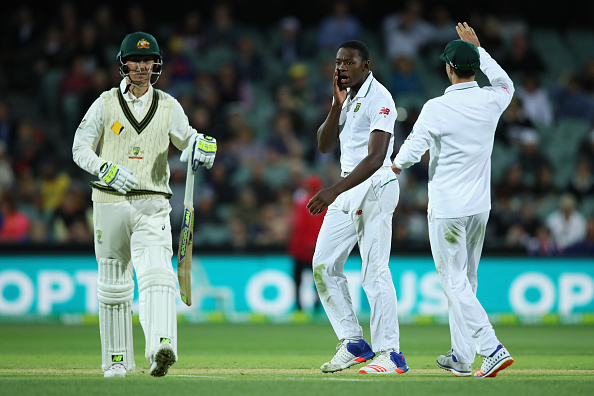Cricket South Africa has written to the International Cricket Council concerning financial compensation for less wealthy nations when scheduled tours don’t go ahead, and how postponed or cancelled tours compromise the integrity of the World Test Championship.
Last week Cricket Australia informed CSA that it could not honour their scheduled three-Test tour to South Africa, citing concerns about the country’s high coronavirus infection rate, as well as the so-called ‘South African variant’. This after CSA met an extensive list of demands, which included:
– The Proteas team would enter the bio-secure environment (BSE) 14 days prior to the arrival of the Australia team, thus altering their planning during the current tour of Pakistan (the Proteas were forced to pick two completely different Test and T20I squads)
– All four areas (two hotels and two venues – Wanderers and SuperSport Park) had a protocol to implement a strict BSE with no contact with anybody outside this area
– CSA subsequently agreed to two separate BSEs, with Australia having full and exclusive use of the Irene Country Lodge (the Proteas shared this venue with Sri Lanka with zero positive cases reported during this time), with minimum staff present on site
– All hotel staff, match officials and even bus drivers were to enter the BSE 14 days prior to Australia’s arrival
– CSA had to import an Australian tracking system at great cost to ensure proper tracking of close contacts in the event of a positive test
– Australia would be granted VIP access through the airports, after government intervention.
Now ESPNcricinfo.com reports that it has seen a letter from CSA to the ICC, in which the governing body calls the unilateral decision to postpone the tour ‘against the spirit of sportsmanship’ and questions the credibility of the World Test Championship (WTC), expressing concerns that such decisions has a ‘serious impact on the financial well-being of less-wealthy’.
However, the letter was sent as a means to facilitate dialogue on these issues, not lodged as a formal complaint, and hence it is unlikely to come before the ICC’s dispute resolutions committee.
The letter also raises concerns about members who ‘can unilaterally decide whether to fulfil their obligations or not’ as it compromises the integrity of the WTC. Australia effectively disqualified itself from the race for the WTC final by opting not to tour, although the likelihood of them making the final was slim anyway. New Zealand will now face the winner of the India-England series.
Australia’s snub comes hot on the heels of another one of the ‘Big Three’, England (India completing the trio), deciding to exert their power late last year, when their players refused to play the remaining matches in the ODI series, citing concerns around the integrity of the bio-secure bubble. This despite the England and Wales Cricket Board urging them to do so.
This cost South African cricket in excess of R30 million. It later emerged that the two England touring members – a coach and a player – having initially tested positive, were later cleared after a second test (false positives are a fairly common occurrence). The false positives meant the bio-bubble was secure.
Furthermore, England players had regularly broken Covid-19 protocols, including to play rounds of golf and training in an undesignated part of Newlands cricket ground.
CSA has subsequently hosted Sri Lanka in a two-Test series on the Highveld, the Pakistan women’s team for three ODIs and three T20Is in Durban, and have held the domestic One-Day Cup in a bubble in Potchefstroom, all without registering a breach of that bio-secure environment.
READ: Cricket needs an uprising
CSA addressed the issue of significant financial loss in the letter, explaining it would ‘… lose much-needed revenue but will also result in wasted costs which CSA can ill afford’, and stressed it ‘cannot over-emphasise the loss of revenue caused by your unfortunate decision as well as the reputational damage that is certain to follow’.
‘The cancellation of our tour sends a hurtful message to the less-wealthy cricket-playing nations of the world,’ CSA’s letter to CA reads. ‘Our considered view is that it will have a deleterious impact on the stability of global cricket, its growth and its future.’







